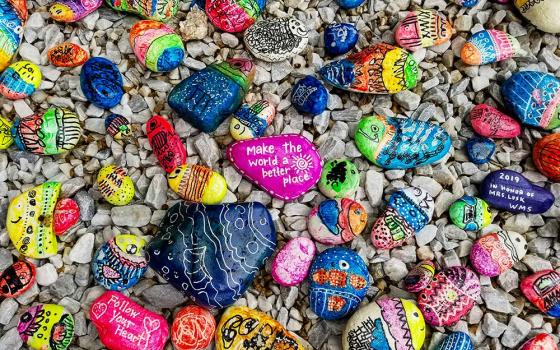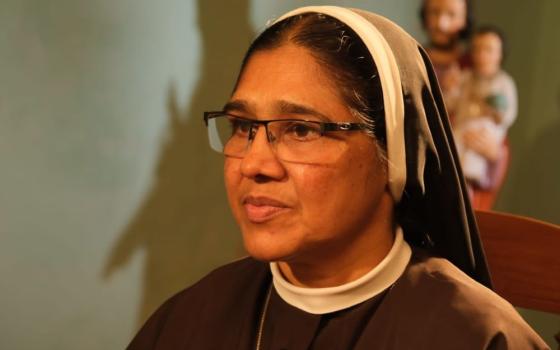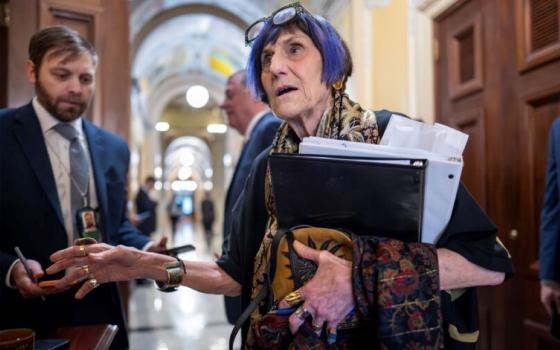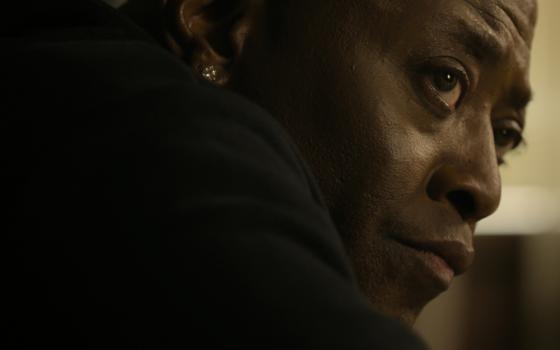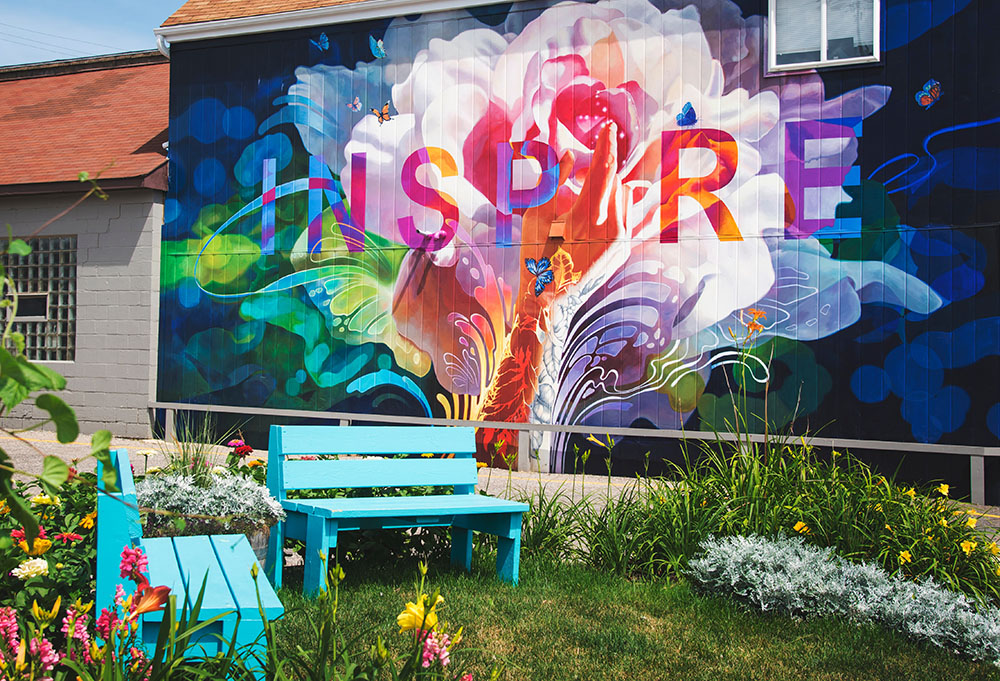
(Unsplash/Gary Meulemans)
This month, the panelists reflected on the question: What are you learning/have you learned from the people with whom you minister?
Their responses highlight the importance of humility, trust and faith in learning from those they serve. The panelists discuss encountering unexpected "zingers from God" in their ministry, along with the need to leverage their privilege to support fairness and promote inclusivity and empathy. Every response reflects a deep commitment to personal growth.
______
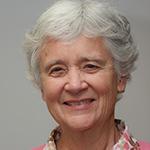
Catherine Ferguson is a member of the Sisters of the Holy Names of Jesus and Mary. First a high school administrator and teacher, she completed doctoral work in international studies that took her to Chile, Peru and Mexico. She interned with Pax Christi in Brussels and served as associate director of Inner City Law Center in Los Angeles. She was founder and coordinator of UNANIMA International, a coalition of several sisters' congregations doing faith-based advocacy at the United Nations. She served as U.S. provincial leader and as congregational leader and is now a board member of Network, a Catholic social justice lobby.
"And God is able to make all grace abound to you, so that always having all sufficiency in everything, you may have an abundance for every good deed" (2 Corinthians 9:8).
I made my first vows as a Sister of the Holy Names in 1964, three and a half years after graduating from high school. Since then, the people with whom I minister have had much to teach me. Most commonly, when I have been given a task for which I have felt unprepared, I learned what I needed to know from someone ministering with me.
A co-minister from another country said to me: 'I really want to share this with you, but I don't want you to do anything about it.'
In the late '90s, working for systemic change was a buzzword for what needed to be done to achieve social justice. But what did that mean, and how would we do it?
Another sister and I were given the task of preparing a workshop for our community members to answer that question. I had a doctorate in international studies, where we dealt with all kinds of international systems, so surely, I had much to say about this. But I lacked the knowledge and experience to design an interactive workshop so that engaged participants could learn how to create systemic change actions and could use their skills in that work.
The other sister, however, had the tools of popular education in her very bones. We designed a successful workshop and, for me, just as importantly, I learned the skills to design other workshops.
Another co-minister had a very special gift of being able to touch the hearts of those around her in a way that brought them to a closer relationship with God. While I never received this same gift, observing her preparation and use of reflection questions led me to become at least an adequate facilitator on the many occasions I was required to lead a prayer service.
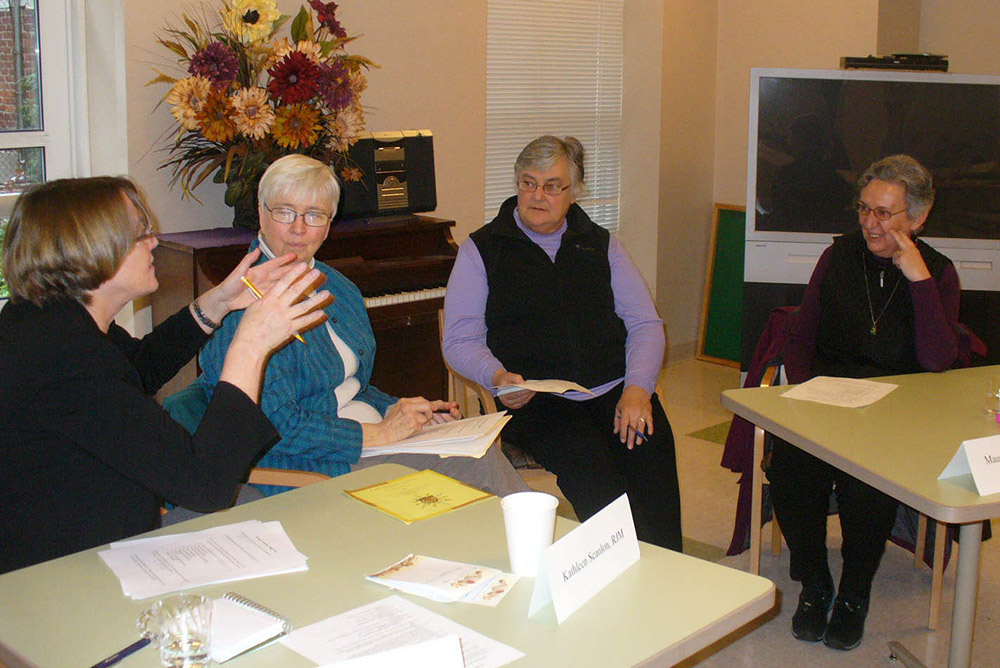
Board members from UNANIMA International engage in a workshop led by then-coordinator Holy Names of Jesus and Mary Sr. Catherine Ferguson in 2010. (Catherine Ferguson)
Finally, I have experienced "zingers from God" — words that come to me from those with whom I minister — that reveal something about myself that leads to some conversion in my way of being. For example, once I had a conversation with a co-minister from another country who said to me: "I really want to share this with you, but I don't want you to do anything about it."
In her comment, I heard my tendency as an American to look at difficulties as problems to solve and then to take steps to try to solve them my way. She didn't ask for a solution, just for me to listen. I understood how learning more about listening can change my relations with other people and with God.
So, for me, these three examples are ways that my head, heart and inner self have received the grace of God and learned from co-ministers.
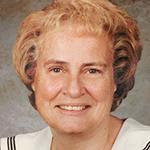
Judy Dohner is a Sister of the Humility of Mary from Villa Maria, Pennsylvania. She has worked with migrants and immigrants for the past 30 years. She returned to the United States in 2018 after ministering in Haiti for 16 years and currently works with Haitian immigrants and refugees in Immokalee, Florida. She has written for Global Sisters Report and the National Catholic Reporter.
I never stop learning from the people I accompany in their poverty and alienation. I am a Sister of the Humility of Mary, and mostly what I learn from them is humility!
I am an American, middle-class, educated, white woman who has been blessed to live religious life for almost 60 years. I have "white privilege." There is no doubt. Humility teaches me to use it for the common good and to seek justice as I minister in direct services to immigrants, refugees, farmworkers and rural poor people of color in Florida.
Mostly, my work is with Haitians, since I lived and ministered in Haiti for almost 17 years. By living with them, I have come to understand a bit of their culture, struggles, faith, resilience and humility. Living among these brothers and sisters means I am usually the only "white" person at church, work, in the grocery store, or visiting their neighborhoods.
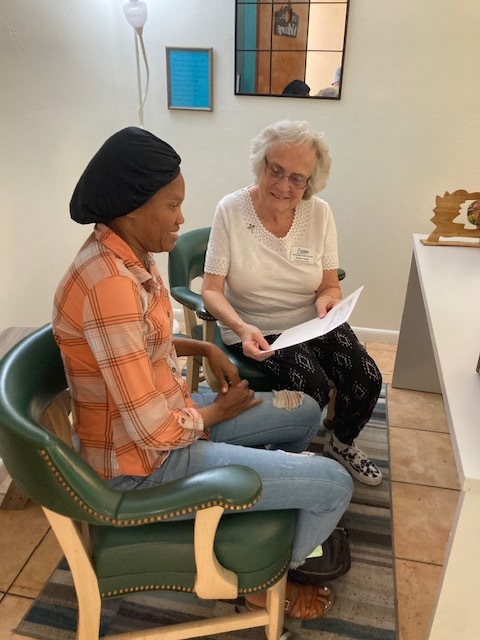
Sr. Judy Dohner assists Beatrix, a recent Haitian immigrant, at Catholic Charities in Immokalee, Florida, where she ministers. (Judy Dohner)
They have grown to trust me and know I try to bring them a sense of the "abundant life" Jesus promises and is our charism. This is not easy in a town, state, country and world where the poor and marginalized are often unseen, unheard and have no voice.
Nadia is a 63-year-old Haitian immigrant who lives in a one-room shack. She has been here legally since the 2010 earthquake in Haiti, and both she and her husband worked in agriculture. Her husband died recently. Together, their monthly income was around $1,000. Her monthly social security income is now $435, and her rent was recently raised to $550 a month. She is three months behind in rent and threatened with being locked out. She uses a walker and has signs of early dementia. She cooks on a hot plate at the foot of her bed. Nadia has no hope of being able to pay her monthly rent.
When asked what she would do, she pointed to the sky and said, "Bondye pral ede mwen" ("God is going to help me"). And, apparently, God sent me!
I have 'white privilege.' There is no doubt. Humility teaches me to use it for the common good and to seek justice.
It is against the law to lock her out of her residence. I contacted the landlord, known for his high rents and lockouts. I contacted the Florida Department of Children and Families because she is a vulnerable elderly adult. I will see that she is not victimized.
This is what a white woman (religious) does with "white privilege" in service to people who are poor. Nadia is teaching me humility, trust, faith and simplicity.
She is just one of many in need. The stories are endless. So are the lessons I learn from those God puts in my life to be my teachers.
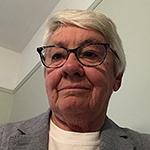
Dorothy Maxwell has been writing reflections on the Sunday readings for the website of the Sisters of St. Dominic of Blauvelt, New York, for years and believes that Dominicans are to preach wherever and whenever possible. She is now in her fourth year of ministry at Bedford Hills Correctional Facility, a maximum-security prison with a population of more than 500.
"To thine own self be true" is a quote from Shakespeare's "Hamlet," in a scene where a son receives advice before leaving to attend a university. When Moses asked God to identify the person speaking from the cloud, the reply was, "I am who I am."
The words to identify who I am are becoming increasingly numerous as the population of this world lives out their inner truth. Aligning with a group will create another word for who I am, as taking a position on a particular cause will please or displease those in social circles who use labels to identify others.
What I am learning from those to whom I minister is that we are in an era of searching for inner truth that has been latent.
Advertisement
Growing up in the '50s was like living with a flock, as we were all going in the same direction, looking alike, and choices were much more limited than they are today. Cliques, classes and shared interests were fun-filled times as the cohorts floated down navigable rivers. Upon entering the world of work, we exhibited as competent, productive laborers contributing to a positive atmosphere while accomplishing tasks.
Now, it appears that youth are putting themselves out there with a distinct identity, announcing that who I am is my badge of courage, and there is a part of me that requires your recognition. It is my experience that spontaneous responses can be offensive and guarded speech is my new rule when communicating.
Fortunately, in my ministry as a prison chaplain, the staff is provided with training to protect us and offer insights on changes we may not be aware of as we encounter the prison population. The person who appears as male with facial hair is a she, and pronouns are a critical part of the daily vocabulary.
We sing "All Are Welcome" in the chapel, but how many really mean those words? Is the song really reflecting a diverse group, signifying that all are welcome?
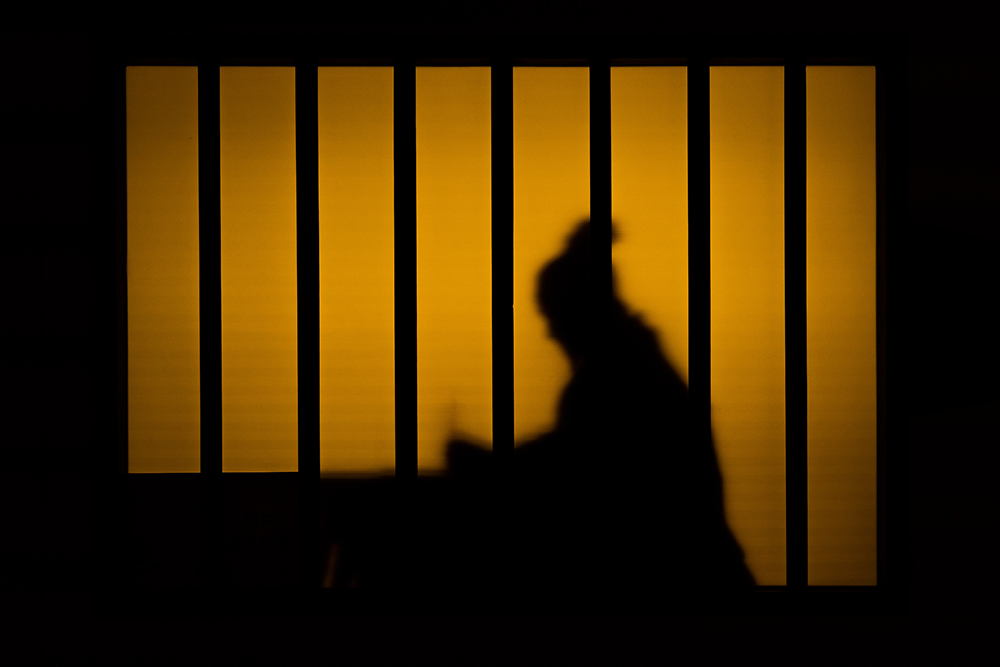
(Unsplash/Akira)
The incarcerated come with a personal history and biases that create tensions where life is lived out in closed settings, where being alone with one's thoughts is only possible in the dead of night. In this setting and all places, much work must be done to discover how inclusivity can be a reality.
Accepting others requires realizing what core values we adhere to and how we relate to those whose values are opposed to mine. Are common core values a possibility in this diverse world? Was this not the message Jesus tried to exemplify while living among us?
As sisters minister to the poor and marginalized, we realize that we are made in the image of a loving God who is our source of strength. However, when the other appears or performs, we need to rely on that hidden God who, with our help, can make the seemingly impossible possible.

Siobhán O'Keeffe, a native of County Cork, Ireland, is a Sister of the Sacred Hearts of Jesus and Mary (Chigwell Sisters) who lives in Liverpool, England. A registered nurse with a diploma in person-centered care, she has additional graduate work in theology, justice, peace and mission studies. She offers spirituality and dementia care training to religious communities and other groups and writes and speaks on that topic and on prayer and spirituality. She has also contributed to Global Sisters Report. She has served in nursing home management for her congregation, supports a variety of social outreach projects, and is a member of the Cognitive Impairment Support Initiative, a project of the International Union of Superiors General and the Leadership Conference of Women Religious in the United States.
As I reflect on the variety of ministries that have blessed my life, I am regularly reminded that "our help is in the name of the Lord." I am deeply aware of my dependence on him to fulfill the mission that he has entrusted to me.
I have witnessed great suffering and profound courage in the people I encounter each day. All too often, life has handed innocent people challenges that could so easily be overwhelming for them. However, they embrace these challenges with patience, fortitude and wisdom. Generosity of spirit is the hallmark of some people.
I have witnessed great suffering and profound courage in the people I encounter each day.
For example, I visited a patient in the final stages of his life in his own home. He had returned home from a hospice to spend his final hours with his family.
When I arrived at the door, his wife, not concerned for herself at this time of great loss, immediately offered me breakfast. I felt so humbled by her graciousness and shared a cup of tea with her. Through conversation, I learned about their shared life experiences — both the joys and the recent traumatic events that cast a shadow over their existence, though not their love.
I felt profoundly grateful to her for welcoming me into their home at such a sacred time in their family history. This encounter made me deeply aware of my need to be "other-centered" in my daily life.
I continue to learn about injustice, for example, when people suffer the degradation of human trafficking, and of my ongoing call to challenge all forms of injustice in society. There are various ways to support victims through awareness-raising, prayer, and campaigns highlighting the needs of those suffering. Challenging injustice in all guises is the call of the Gospel and the responsibility of all members of society.
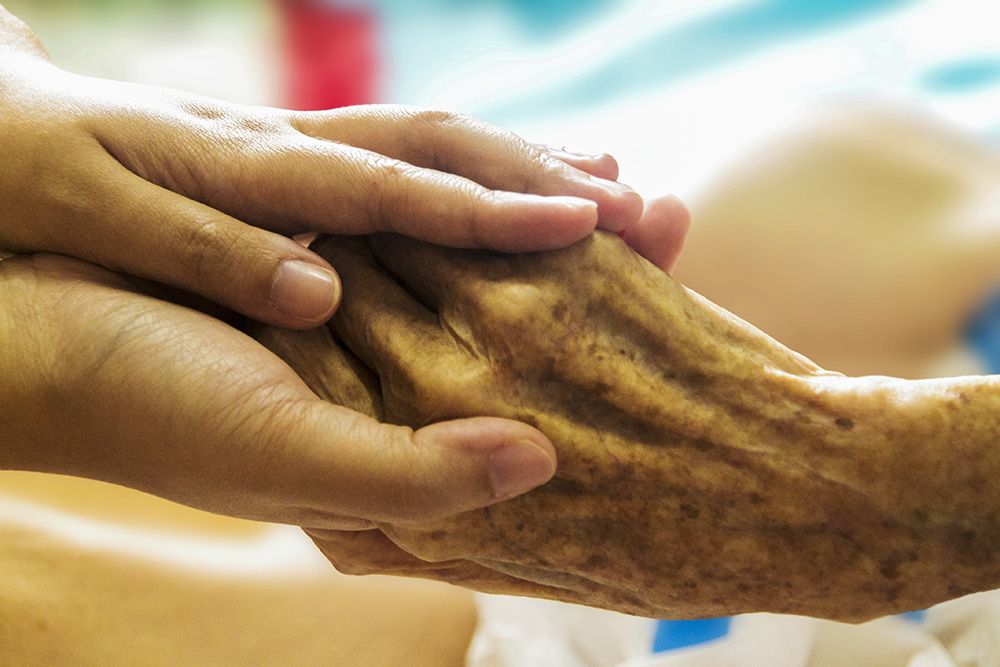
(Pixabay/truthseeker08)
The COVID-19 pandemic inflicted grave suffering on all society, especially the most vulnerable members. The fallout of this crisis continues. People grieve for loved ones and struggle with a profound sense of loss due to their inability to be with their loved ones in their final days.
In my current bereavement ministry, I am called to listen deeply to the heart-wrenching pain stemming from this loss. I know I do not have any answers for people's suffering, but so often, people simply need to know that others care deeply and are present to them in their grief.
I continue to entrust all to the mercy of God, knowing that "our help is in the name of the Lord." Our compassionate God embraces all and brings comfort and healing in his way and time. May all who suffer be blessed with peace.
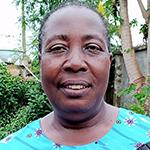
Monica Umeh Uchechukwu from Anambra State, Nigeria, is a member of the Sisters of Notre Dame de Namur. She joined the community in 1991 and began her nurse's training and later studied midwifery. She has served as novice director and is currently on the leadership team for her community.
Learning is a lifelong process. With 32 years in religious life, and having worked in pastoral, health, formation and leadership ministries, I have learned that the world is like a marketplace where everyone comes to shop and then returns home. Life is too short to waste time fighting over things that do not add value to human existence.
Cultivating good relationships with those I work with makes life more exciting and meaningful. To develop meaningful relationships, one needs to go the extra mile in getting to know the people well — understanding their backgrounds and cultures. Otherwise, we can easily misjudge their intentions. My lifestyle communicates beyond words my values as a person.
Ministry is like a coin with two faces — I minister to others, and they, in turn, minister to me.
Relating respectfully to others as unique individuals, treating them with dignity, and refraining from comparing them with others bring out the best in them. Addressing my colleagues by their names makes them feel more connected to me, thereby positively influencing our teamwork.
The same dynamic occurs when I reach out to them, whether in their homes or at work. When I identify with them, they openly share their sacred space with me, confident that I will not judge them.
Trust and belief in others lead them to prove themselves in order to maintain trust. Giving compliments, incentives, celebrating achievements and hard work, looking out for each other's welfare, and assisting in times of need all motivate and provide job satisfaction.
I am learning that doing odd jobs doesn't diminish who I am. Instead, it adds to my respect and challenges others to action. Additionally, delegating duties empowers others, reduces my workload and lessens the stress of trying to do everything myself.
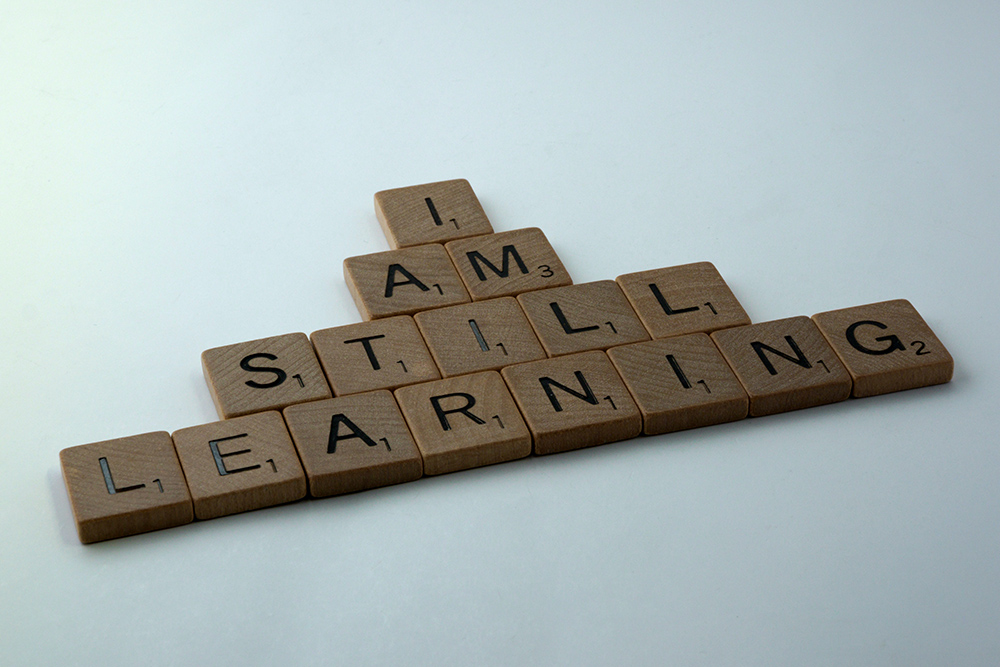
(Unsplash/Brett Jordan)
When everyone is involved in planning, implementing and evaluating issues that affect the group, people take responsibility for their decisions and work toward achieving their goals. I have learned to treat every worker as important because each person's work contributes to the whole.
Our deeds, whether good or bad, eventually come back to us. People never forget those who empowered, boosted their confidence and supported them in times of need. Our good deeds will be remembered when we are gone. The positive marks we leave behind become part of our legacy.
I have learned to verify what people tell me before taking action, not allowing others' negativity to influence my judgment of others and their situations. Another beautiful learning is that not everyone will praise me when I am doing well. Some people will work against me, but those with good intentions always succeed. A mix of ups and downs, joys and challenges enriches life in general.
Ministry is like a coin with two faces — I minister to others, and they, in turn, minister to me.


